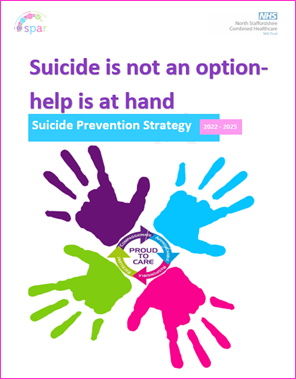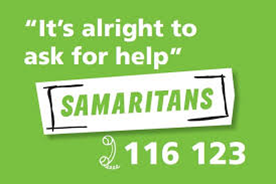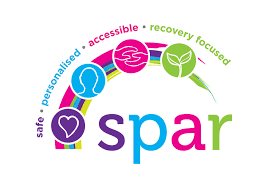Suicidal Thoughts

Information
Here you’ll find answers to some common questions concerning suicidal thoughts
Select the underlined questions below to see more.
Suicide can be a difficult subject for many people to talk about, yet 1 in 5 people experience suicidal thoughts in their life time.
Some people feel ashamed about their thoughts and feelings and don’t seek out help and support. Some people are also worried about asking about suicidal thoughts for fear that they may put that thought into their head.
You should not be worried about asking someone how they are and if they are thinking of harming themselves. By asking them how things are you will help them feel valued and you will reduce the likelihood of them going on to attempt suicide.
Suicidal thoughts can be scary. Sometimes they are thoughts and sometimes a person may make a plan of intent to follow through with those thoughts.
Suicidal thoughts are often a reaction to a person’s emotional distress, if they are not supported in managing the distress, they are suffering, this is what can lead to experiencing suicidal thoughts.
You do not have to have a mental illness to have these thoughts, people experiencing issues with things such as financial concerns or family issues in the home can begin to have feelings that right now life isn’t worth living.
What is important is that life will not always be like that and with help and support things can improve and so the intensity of suicidal thoughts can diminish.
What can you do if someone close to you has told you they are thinking about suicide?
When someone tells you that they are considering suicide it can be really scary. The best way to support someone feeling like this is to listen to what they are saying and be empathetic towards them – but what does this mean?
Showing empathy can be hard we have a tendency to want to “fix” the issue, this is because listening to distress is distressing, so we want to fix it to make us feel better. However this approach doesn’t help the person who is in distress. To demonstrate empathy you need to sit with the person and share their upset but without judgment and without trying to “put a silver lining on it”, by this we mean don’t end sentences with “….. at least” or don’t say things such as “it can’t be that bad”, this can make the person feel that you are trying to “play down” their feelings and add to their feelings of distress, worthlessness and hopelessness
It’s important for you to know that you are not alone in supporting this person, being there for them will help them feel better, but there are people you can call to help too who are trained to support people feeling suicidal such as the Samaritans or the Crisis Care Centre based at Harplands Hospital – both of these are 24 hour 7 day a week services.
You can also call 999 – if you are concerned about someone’s immediate safety or they have disclosed to you that they have put themselves in danger physically and may need medical treatment.

Coping with
If you begin to feel like life is getting too much and you are struggling to manage there are things you can do for yourself, there are also things you can ask those around you to support you with.
A key indicator for feeling like life isn’t worth living is feeling that you are alone and that there is no-one you can talk to.
Sometimes it’s about getting through just the next few minutes, if you can recall a time when things were bad before you might be able to see that you got through it then so maybe you can get through it now.
Click on the buttons below to find techniques may help you cope.

Finding help
Who can I talk to?
- Friends
- Family
- Someone you trust at school
- Youth worker
- Health professional (GP; Counsellor Nurse)
- Charities and Helplines
Select the underlined topics below to view what resources are available.

Getting more help
If you haven’t already found the help you’re looking for, you can find additional information and services which are more interactive here.














 Is there something you can do right now to distract yourself, e.g. write a note about how you are feeling, take a walk outside where you feel safe, this is useful for a technique known as grounding – focusing on the here and now – listen to the noises around you and really focus on them or think about how the sun/ wind/ rain feels.
Is there something you can do right now to distract yourself, e.g. write a note about how you are feeling, take a walk outside where you feel safe, this is useful for a technique known as grounding – focusing on the here and now – listen to the noises around you and really focus on them or think about how the sun/ wind/ rain feels.



